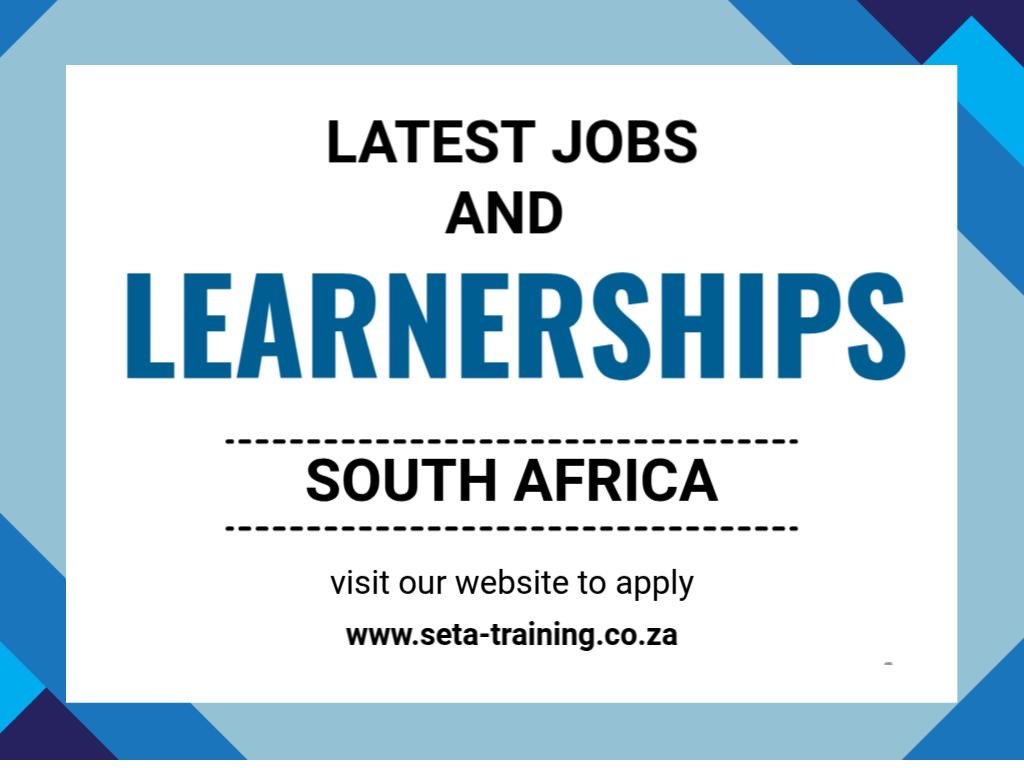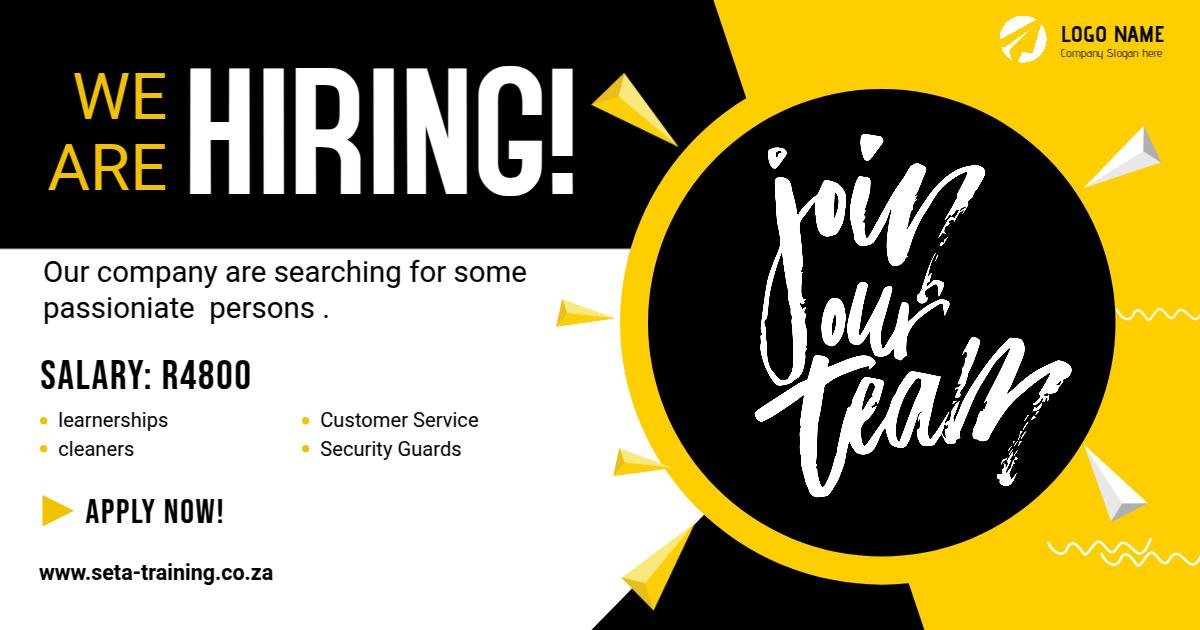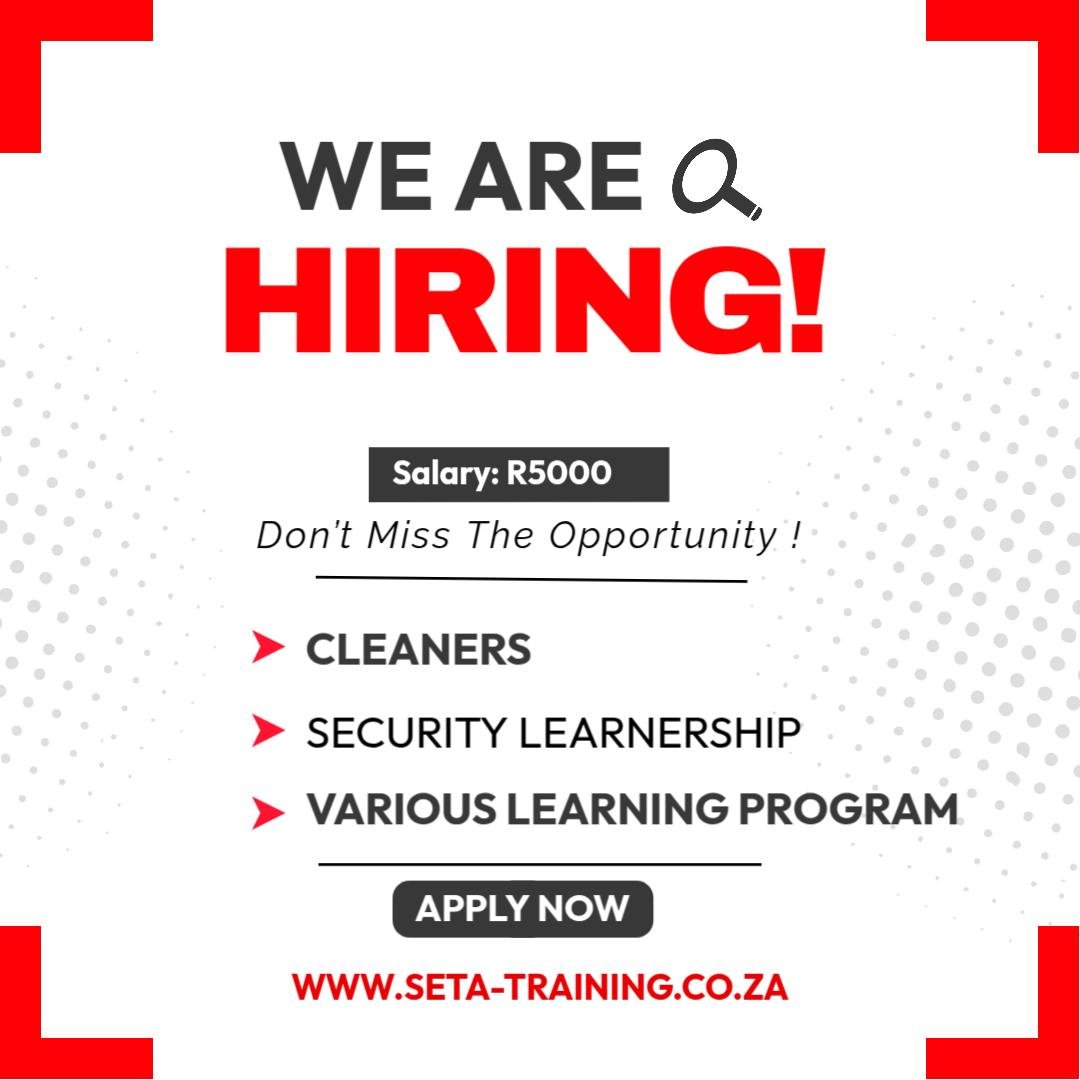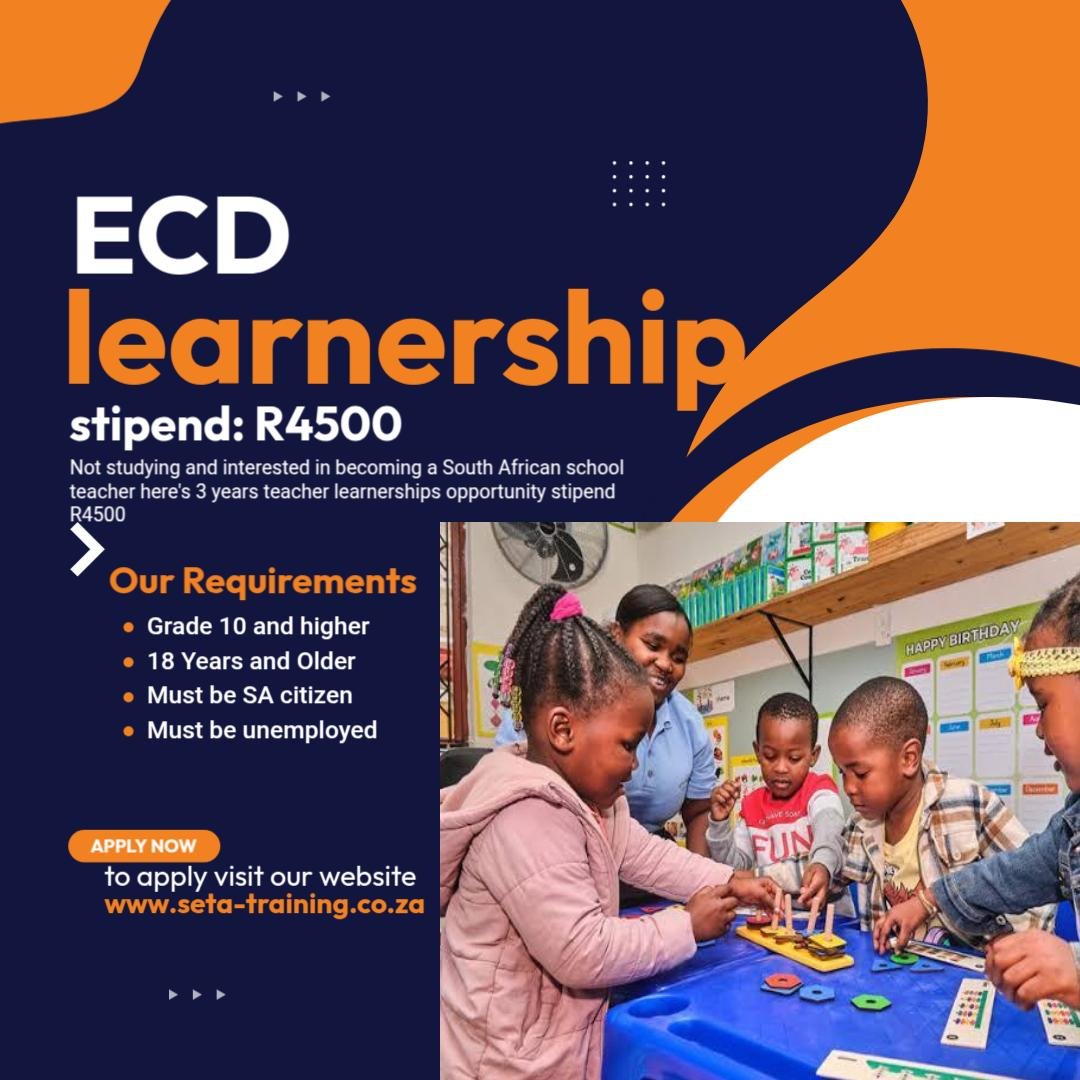South Africa’s unemployment rate remains one of the highest globally, making jobs and learnerships exceedingly important for many young people. Learnerships offer both practical workplace experience and accredited qualifications, helping bridge the gap between education and skills needed by employers. In this article, we explore what’s new in job and learnership opportunities today, what programmes are available, how to apply, and tips to improve your chances.
What Are Learnerships & Why They Matter
- A learnership is a structured programme combining theoretical and practical on-the-job training, usually resulting in a qualification registered with the South African Qualifications Authority (SAQA).
- They typically last from 12 to 24 months, depending on the sector and qualification level.
- Learnerships help young people gain real work experience, earn a stipend, and become more employable. For many employers, completion of a learnership is a stepping stone to a permanent position.
Recent Learnership & Job Opportunities
Here are several freshly-announced or ongoing learnerships and job programmes in South Africa as of today:
| Programme | Location | Sector / Discipline | Key Requirements & Details |
| Toyota Financial Services Learnership (Retail Insurance, NQF Level 4) | Woodmead, Gauteng | Financial Services / Insurance | One-year learnership; formal training + allowance; open to those committed to the financial services sector. |
| Engineering Learnership 18.1 – Tshipi é Ntle | Kathu, Northern Cape | Mining / Engineering | Mixed theoretical and practical skills; good for people interested in engineering learnership roles. |
| ATNS Electrical/Electronics Engineering Learnership | Bonaero Park, Johannesburg | Aviation / Engineering | 24-month programme; includes mentorship, practical training, assessed via logbook and workplace assignments. |
| Retail Stores Learnerships – Persons with Disabilities | Various (Western Cape, Free State, Limpopo, Eastern Cape, North West, KZN) | Retail / Sales | Cross-training; people with disabilities; operating on sales floor & service desks. |
| Standard Bank Learnerships | National | Banking / Finance / Commercial Banking / Investment Banking Operations | Fixed-term (12-24 months) with a monthly stipend; SAQA accredited; for matric-holders or those with post-matric qualifications depending on role. |
| Sasol Learnerships | Nationwide, especially industrial areas | Process / Production; Electrical; Fitting; Welding; Instrumentation etc. | Must have technical mathematics, physical science, English; many artisan disciplines. |
| Bidvest Tank Terminals Chemical Operations Learnership 2025 | Durban, KwaZulu-Natal | Chemical Operations | NQF Level 3; closing date circa 24 September 2025. |
| Eskom YES Learnerships 2025/2026 | Across South Africa | Multiple fields | Youth Employment Service (YES) programme; fixed-term; aims to place unemployed youth for 12 months. |
| SAICA Graduate Traineeships – eThekwini Municipality | Durban, KwaZulu-Natal | Accounting & Finance | Structured workplace training; for graduates; requirement of accounting qualification.  |
These are just a few of the many opportunities advertised. On platforms like PNet, Indeed, LinkedIn, Graduates24, StudentRoom etc., you can find dozens to hundreds of learnerships or entry-level job postings.
How to Find & Apply for Jobs / Learnerships
Here are practical steps and tips:
- Search on trusted job portals
Use platforms like Indeed, PNet, Graduates24, LinkedIn. Filter by “learnership”, “entry-level”, “youth employment”, or “disability friendly” if applicable. - Monitor career pages of large companies
Organisations like Sasol, Standard Bank, BP, Sibanye-Stillwater often have official learnership programmes. Their websites provide deadlines, application requirements. - Check SETA and Sector Skills Authorities
Each SETA may advertise learnerships in their industry. Also, through MERSETA, QCTO etc. For example, merSETA describes how learnerships are structured, how to apply, and how allowances work. - Ensure you meet the criteria
Common requirements include having Matric/Grade 12, sometimes specific subject passes (Maths, Physical Science), being South African citizen, not already employed or studying full-time. Some programmes have age limits. - Prepare a strong CV and application
Emphasize any volunteer work, internships, school participation, especially in relevant fields. Be clear on your qualifications. For people with disabilities, include documentation if required. - Apply early and track deadlines
Many programmes have strict closing dates. Example: Bidvest Tank Terminals’ Chemical Operations Learnership closes 24 September 2025. - Prepare for interviews and assessments
After applying, you may go through interviews, psychometric tests, medical checks, etc. Be ready. Companies like Sasol include psychometric assessments; documentation and verification are standard.
Current Trends & Insights
- There is strong demand for technical and artisan skills: welding, boilermaking, instrumentation, electrical, fitting etc.
- Financial services and retail insurance remain sectors offering many entry-level / learnership opportunities.
- Inclusivity programmes: There are learnerships specifically for persons with disabilities, and many companies are offering such inclusive training.
- The Youth Employment Service (YES) and other government-backed programmes continue to play a role in creating opportunities.
Challenges That Apply
While opportunities are there, applicants often face challenges:
- High competition: Many learnerships receive a large number of applications, especially desirable ones in big centres (Johannesburg, Cape Town).
- Specific subject requirements: For technical learnerships you often need good marks in mathematics, physical science etc. Those without often don’t qualify.
- Geographical limitation: Some learnerships are only available in particular provinces or towns. If you are far away, relocation might be necessary which adds cost.
- Lack of accessible information: Not all companies advertise broadly; some posts are not well detailed which can lead to confusion.
Tips to Stand Out & Maximise Your Chances
- Tailor each application: Show how your skills (even non-professional ones) match what the employer wants.
- Emphasize soft skills: reliability, communication, teamwork etc are often just as important as technical ability.
- Demonstrate willingness to learn: Learnerships are about growth; employers like candidates who show adaptability, curiosity.
- Gather documentation early: ID, Matric certificate, subject results, disability documentation if relevant.
- Use email alerts and subscriptions: On job portals set alerts for “learnerships”, “entry level jobs”, “YES programme” etc.
Frequently Asked Questions (FAQs)
Q: Do I have to pay to participate in a learnership?
A: No. Legitimate learnership programmes do not require payment to apply or participate. If an employer or training provider asks for money upfront, that is a red flag. Sasol explicitly states fraud alert: they will never require a cash deposit.
Q: Will I get a stipend / allowance?
A: Yes. Most learnerships include a stipend for the unemployed learners for the duration of the programme. The amount varies.
Q: Is age a major barrier?
A: Some programmes have an age cap (e.g. between 18-30 years), but many do not. Check each programme’s criteria.
Q: What is NQF Level?
A: The National Qualifications Framework (NQF) is a levels system (from 1-10) that rates qualifications formally recognised in South Africa. Learnerships are aligned with NQF levels—for example Level 3, Level 4 etc.
What’s New & Key Closing Dates
Here are some of the learnerships / programmes with closing dates or new intakes to watch:
- Bidvest Tank Terminals Chemical Operations Learnership – closing 24 September 2025 – Durban, KZN.
- YES Learnerships 2025/2026 (Eskom) – ongoing / new cycle.
- Transnet Young Professional / WIL Programmes – apply for 2025/2026.
- Toyota Financial Services Retail Insurance Learnership – for the 2026 financial year.
How Employers Benefit Too
It’s not just learners who gain; employers benefit in many ways:
- Access to fresh talent and newer ideas
- Possibility of retaining high performing learners as permanent employees
- While learners are being trained, they contribute to the company in supportive roles
- Employers can often claim grants / incentives via SETAs and related bodies for taking on learners.
Final Thoughts
If you’re looking for a learnership or entry-level job in South Africa today, there are many opportunities out there. The key is staying proactive: monitor reputable sites, prepare your materials, meet requirements, and apply early.
To summarise:
- Look for programmes in technical fields, finance or retail, which seem to be hiring
- Make sure you fit the application criteria (qualifications, subjects, age, etc.)
- Be attentive to closing dates
- Prioritize learnerships that give both theory and real workplace exposure
- Always verify that no fees are required and it’s a credible organisation
With the right preparation and persistence, a learnership can be the gateway to stable employment and a solid career path.



